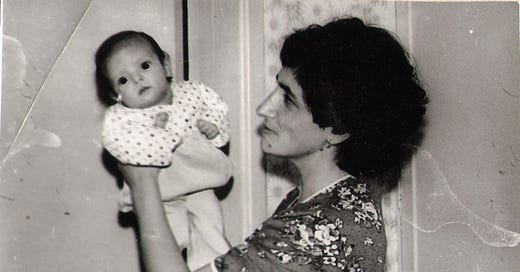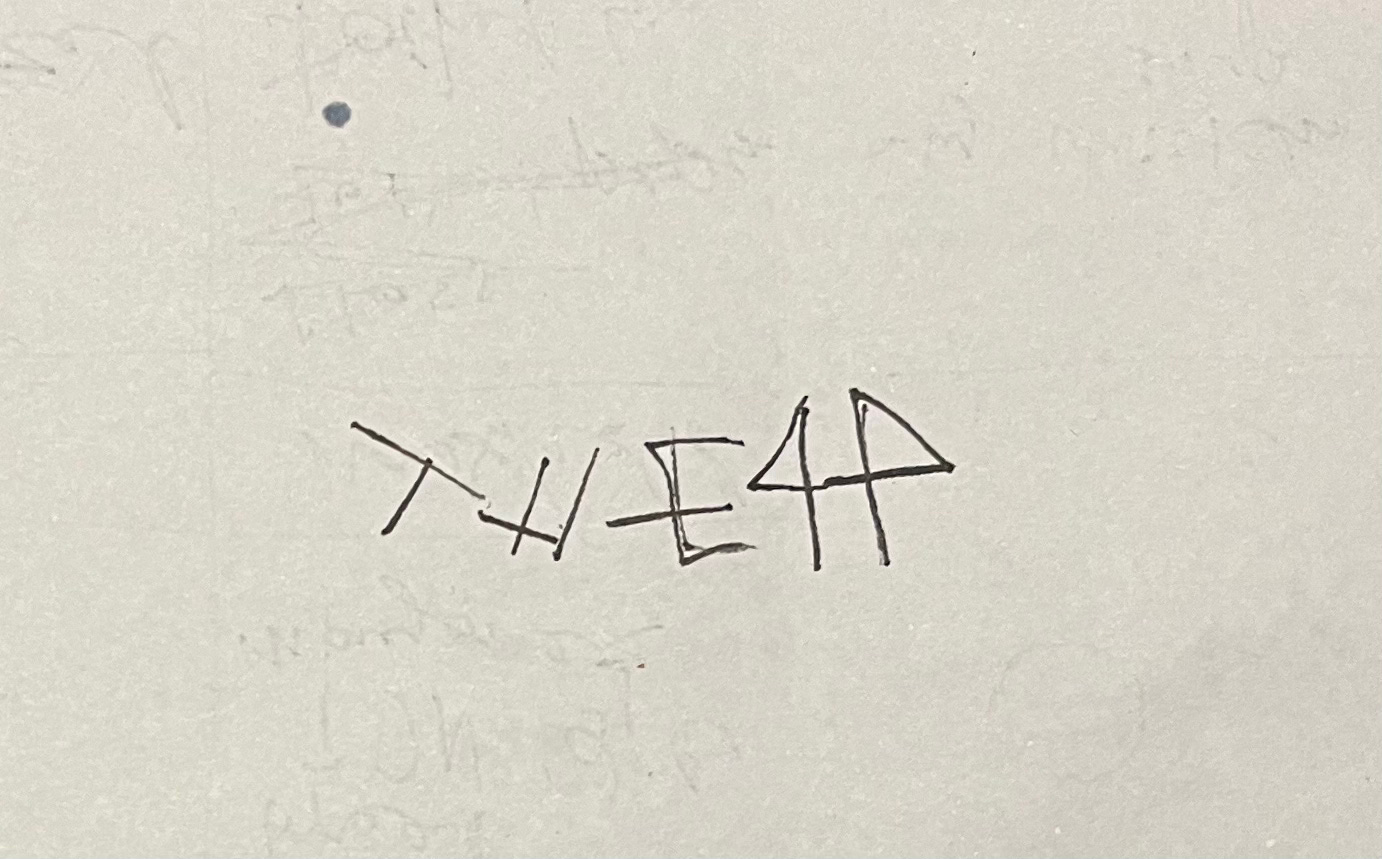“Maya let’s speak Russian.”
“No.”
“Just for two minutes.”
“No.”
“One minute.”
“No.”
“30 seconds?”
“Ten.”
“Twenty.”
“O…K….”
I set the timer on my phone. “Ok, ready?”
“No. Let’s wait for these people to pass.”
We wait for these people to pass. And then some more people. And then a man with a German Shepherd. And then a kid on a bike. We’re on our way to an ice cream shop on a Saturday morning so luckily there aren’t too many people on the street because most stores are closed on Saturdays.
When the street is finally empty I press the timer.
I start: “Ummm…. Stho ty lyubish bol’she, shikalad ili marozhinaje?” (“What do you like more, ice cream or chocolate?”)
“Ummm... ummmm…. I forgot the word…”
“Kakoye slova? Skazhi pa angliski” (“What word? Say it in English.”)
“Both”
“Oba”
“Oba.”
Beep.
I don’t normally do that. Maya and I speak English 99% of the time. Sometimes, when I’m tired, I switch to Russian, but I never coerce her to reply in Russian. It’s a free country and everyone speaks whatever language they want. (That’s what I say when she objects to me speaking Russian to her.)
But lately, I want us to have an actual conversation in Russian. Maybe it’s because of all these foreign languages I’m (not) learning. Or maybe it’s because Rusyn made me want to go and binge-watch Soviet-era cartoons. Or maybe because it’s cold and rainy outside.
Or maybe because of some family stuff that’s been happening lately.
Whatever it is, I miss speaking Russian to her more than I used to.
She doesn’t miss it though. She says, “Why do you want me to speak this language? I don’t like it! I want to lose this language!”
I don’t have a good answer to this question. The truth is I also want to lose this language, or at least my attachment to this language, but I can’t.
I grew up completely monolingual until I moved to Israel at 15. That means that, no matter how many other languages I learn and how well, I will only ever have one mother tongue.
I can go forever without speaking Russian (I’m not even sure I think in Russian) but when it comes to speaking to my kids, the most natural thing for me is to interact with them in Russian. I spoke only Russian to Yannai when he was little (we lived in the US and Canada back then). But for various reasons too complicated to get into here I spoke Hebrew to Maya when she was a baby (we lived in the UK) and only introduced Russian later.

I’ll tell you this story sometime later.
Suffice it to say that at some point in their multilingual childhood, my kids needed an interpreter to interact with one another.
I might not like speaking Russian very much but in moments of distress, my mind still goes back to Russian.
Three years ago when my dad died of COVID I had a sudden urge to walk around and listen to songs from Soviet movies and children’s cartoons in my headphones. There was nothing in those songs that specifically reminded me of my dad, but I suppose it reminded me of the safety of childhood.
Do you ever get a feeling that only things that happened before you were 15 years old are real? That everything that happened since then is kind of fake?
That your only real home is the apartment on the 9th floor of a dull Soviet 12-story building where you threw crayons off the balcony to hear the distant ‘plop’! on the asphalt a few seconds later. (I pitied the people who lived on the first, second, or even sixth floor because they heard the ‘plop’ as soon as they released the crayon.) That the only real books and the only real movies are those you read and watched as a kid — or the ones your parents watched in the background as you sat on the floor of the living room choosing which crayons would be the next ones to fly off the balcony.
That the only real language is the one your parents used to tell you off when they had to buy you the second pack of crayons in a month.
And I didn’t even like being a child. I found it too limiting, like a straitjacket. The Soviet upbringing. Be all polite and well-mannered but also why are you so serious and not singing and dancing unselfconsciously like all these other well-mannered and perfectly unselfconscious, laughing-at-the-perfect-decibel-level and appropriate-level-of-happy-looking Soviet children?
Now I’m 42 I can be as serious or as silly or as impolite as I want to be. (Almost. Give me another 40 years and I’ll get there.)
But I still can’t help but feel sometimes — lately especially — that everything around me is kind of made up. Everything can be dismantled with a poof like a cardboard house. The language that I speak to my kids in, the things that we say.
I don’t know if people who lived all their lives in the same language or the same country sometimes feel this way. Is it a function of time and space and language or just time?
I don’t think Russian will ever be useful to Maya. I don’t care if she can read Dostoyevsky in the original language. She’ll hopefully never have a reason to go to Russia. She knows enough (for now) to understand her Russian-speaking grandparents (and her aunt who has somehow managed to pretend all these years that she doesn’t speak any other language) but I know she can also easily lose that.
I know that people often feel a sense of loss when they grow up and realize they don’t speak their parent’s native language, even if it’s the language of the most evil empire on Earth.
But it’s not this that motivates me. I have completely selfish reasons to want her to speak Russian. I am worried that when I’m old and my brain is tired, I will have forgotten every other word in every other language I knew or simply will not want to bother anymore, and then we won’t be able to communicate.
(P.S. I wrote this and then I asked Google “Will Maya understand me when I’m old?” I was hoping it would say something reassuring, but Google said my intuition was right and she probably won’t. And Google never lies.)






Language is a "fishing net" thrown at reality by culture, capturing a moment an event and tag it in conscious. Language can be used to communicate but before that it is a hatch to the culture and perspective of whom that use it. Even if Maia won't use Russian in practical life, she will use it to feel part of you, part of your culture and mind.
Great post, Tanya. I’m Brazilian-American and my kids were born in the US. I only speak Portuguese to them and they reply in English. They used to speak more Portuguese with me, but switched to English after starting school. Having a second language is a great skill, so I would encourage you to speak more Russian with your daughter. She may not reply in your language and that is ok - it’s a free country, as you said - but being exposed to another language is always valuable. Looking forward to reading your new posts!